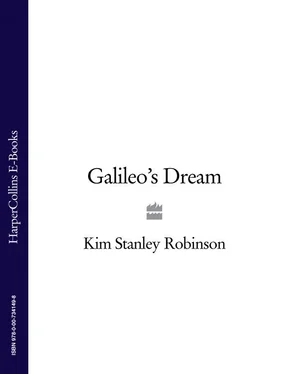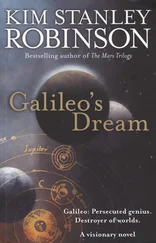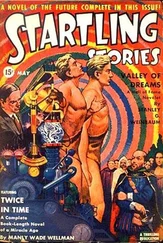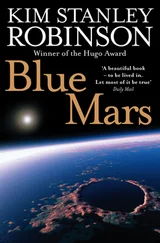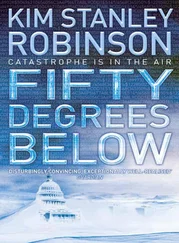Startled by this abrupt departure, Galileo stood with his mouth hanging open, wondering if he had said something to offend. But Niccolini assured him that this was Paul’s way, that given the frequency of his audiences, the time he saved by dispensing with the always-lengthy farewells added up to an hour or more a day. ‘The amazing thing is that he stayed as long as he did. If he had not been truly interested he would have left much earlier.’ In truth the audience had gone wonderfully well, and Galileo had been shown great favour by being commanded to walk with the Pope. It had been one of the friendliest audiences the ambassador had ever witnessed. A triumph for both Galileo and for Florence. Coming from Niccolini, who was suddenly enthusiastic, Galileo knew it must be so.
After that Galileo lost his head, everyone around him saw it. The endless parade of banquets at which he was the centre of all attention and praise; the rich food; the balthazars and fiascos of wine; the long nights, when despite all the revelry he would stay up afterward to get some more sightings of Jupiter and its moons, so that even in the midst of everything else he was homing in on good orbital times for I, II, III, and IV-and yet he still had to rise early on the mornings after to prepare for yet another feast: all these began to take their toll on him. The idea that he would keep his mouth shut during a banquet discussion, be it on pride or anything else, became laughable. He talked lots: he discoursed, he lectured, he conversed, he boasted. He had always known that he was smarter than other people, but in the years when that had not actually seemed to benefit him, he had not been so impressed by it. Now, as he became ever more full of himself, he began to use his wit like a sword, or to be more accurate, given the rough buffo tenor of his humor, like a club. Buffo became buffare as he swelled up.
Speaking one night of the uneven surface of the moon, for instance, revealed so clearly by his telescope, he reminded everyone that this was a big problem for the poor Peripatetics, as the Aristotelian orthodoxy was that everything in the heavens was perfectly geometrical, and the moon therefore a perfect sphere. Even Father Clavius, he said, had ventured, and in print, that although the visible surface of the moon was uneven, this could be illusory, and all its mountains and plains could be encased in a clear crystal shell that constituted its perfect sphericality. Galileo’s tone of voice expressed his incredulity at this opinion, and as the audience chuckled they also grew more attentive; this was treading a little close to the edge.
Cartophilus had joined some of the other servants in borrowing a pillow and a bottle of wine and lying out in the vineyard, outside the cast of the torchlight bathing the long banqueting table, there to watch and listen. The guests in their bejewelled finery were like a painting come to life and performing for them alone; but Cartophilus sat up and put the bottle down as Galileo began to poke fun at the famous old Jesuit:
‘If everyone is allowed to imagine whatever they please, then of course someone can say that the moon is surrounded by a crystalline substance that is transparent and invisible! Who can deny it? I will grant it without objection, provided that with equal courtesy I be allowed to say that the crystal has on its outer surface a large number of huge mountains, thirty times as high as terrestrial ones, but invisible because they are diaphanous. Thus I can picture to myself another moon ten times as mountainous as I said in the first place!’ The guests at the table laughed. ‘The hypothesis is pretty,’ Galileo went on, goaded by their amusement, ‘but its only fault is that it is neither demonstrated nor demonstrable! Who does not see that this is a purely arbitrary fiction? Why, if you counted the Earth’s atmosphere as a similar kind of clear shell, then the Earth too would be perfectly spherical!’
And of course they all laughed. Ha ha! Very funny! And it was. Galileo’s signature mix of wit and sarcasm had been making people laugh for years. But Christopher Clavius had always been friendly to him; and more generally, it was never good to make fun of the Jesuits. Especially publicly, in Rome, and right before the Jesuits were to host a lavish feast at the College of Rome to celebrate your accomplishments. Yet here he was. Cartophilus could only groan and take another swig from his bottle: from the darkness of the vineyard, the sight of Galileo standing in the torchlight over the long table of seated revellers was the very image of Pride before its Fall.
But Galileo did not notice any danger. He ate, he talked, he boasted. He trained his telescope on the sun, using a method suggested by Castelli: the sun’s light was directed through the tube onto a sheet of paper, where one could look at the big lit circle with no danger to the eyes. And immediately it became apparent to any viewer that the lit image of the sun was dotted by small indistinct dark patches. Over the course of days, these dark spots moved across the sun’s face in a manner that suggested to Galileo that the sun too was rotating, at a speed that he calculated made its day about a month long. Rotating at about the same speed as the moon in its course around the Earth, therefore; and they were the same size in the sky. It was odd. He made sketches each day of the sun spots’ patterns, and placed the sketches side by side to show the sequence of movement.
Galileo claimed this discovery of the sun’s rotation for himself, though there were astronomers-Jesuits again-who had been tracking the sun spots for some time. He proclaimed his discovery far and wide, ignoring the fact that it was another inconvenient finding for the Peripatetics, also that it contradicted certain astronomical statements in the Bible. He didn’t care; if he noticed such problems for his opponents, he would only make another sharp heavy joke about them.
For now, none of these indiscretions seemed to be having any bad effect. At the Jesuit banquet in his honour no one spoke of his jape at Clavius’s expense, and Clavius’s colleague, the Dutch astronomer Odo Maelcote, read a learned commentary on Sidereus Nuncius which confirmed every discovery Galileo had reported. It appeared he did not have to care.
Then the newly enthusiastic Niccolini was replaced as Cosimo’s ambassador to Rome by Piero Guicciardini, who, finding Galileo at the height of his magniloquence, did not like him. And back home, Belisario Vinta was replaced as secretary to Cosimo by Curzio Picchena, who shared with Guicciardini a more jaundiced view of Galileo’s loud advocacy of the Copernican position. They saw no reason the Medici should be drawn into such a potentially awkward controversy. But if Galileo noticed these new men and their attitude toward him, again he did not seem to care.
Meanwhile, Cardinal Bellarmino, Pope Paul’s closest advisor, also a Jesuit, and the inquisitor who had handled the case of Giordano Bruno, initiated an investigation into Galileo’s theories. This was probably on Paul’s instruction, but the spies within the Vatican who had found out about it could not be sure of that. Bellarmino, they said, had looked through a Jesuit telescope himself; he had asked his Jesuit colleagues for an opinion; he had attended a meeting of the Holy Office of the Congregation, which subsequently began to look into the case. Bellarmino seemed to have been the one to order the investigation.
But no one told Galileo about this troubling development, being not quite sure what it meant. And because of his meeting with the Pope, and everything else that had happened, he was still full of himself, bumptious and grand. The visit to Rome was a triumph in every way, even if Guicciardini was now hinting that it might be best to leave while he was still being lionized. The ambassador stayed just on the right side of politeness about this, but if Galileo had sneaked into his office and looked at the letters on his desk, as proved fairly easy to do, he would have gained a truer sense of the ambassador’s mind:
Читать дальше
